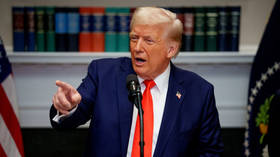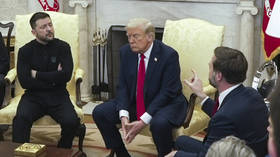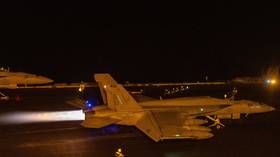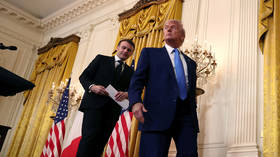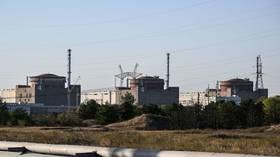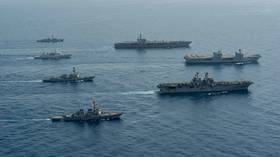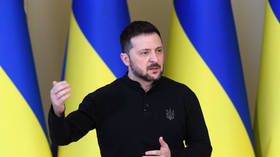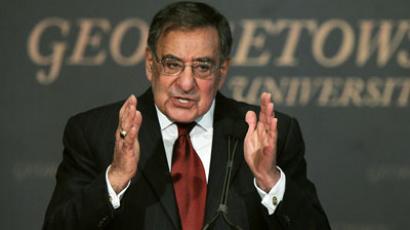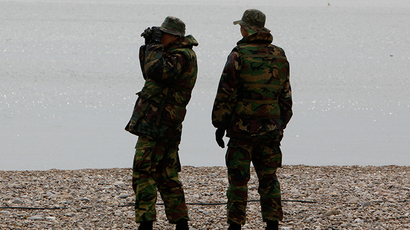Panetta reveals US nuke strike plans on N. Korea, spurs controversy
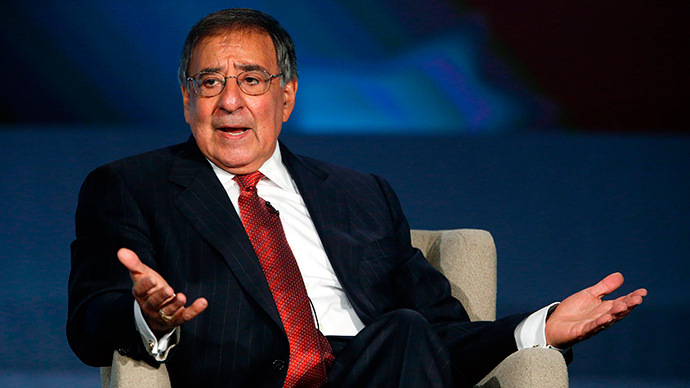
US war plans against North Korea recently included the option of a nuclear strike, former CIA Director and Defense Secretary Leon Panetta revealed in his memoirs, triggering major controversy.
READ MORE: The Kim is Back: North Korean leader makes first public appearance in a month
Panetta described a 2010 briefing in Seoul by General Walter L.
‘Skip’ Sharp, the commander of US forces in South Korea, where it
was made clear that the nuclear option was on the table if North
Korean forces crossed into the demilitarized zone (DMZ) between
the North and the South.
“If North Korea moved across the border, our war plans called
for the senior American general on the peninsula to take command
of all US and South Korea forces and defend South Korea—
including by the use of nuclear weapons, if necessary,”
Panetta wrote in ‘Worthy Fights: A Memoir of Leadership in War
and Peace’.
Panetta added that he left the briefing with “the powerful
sense that war in that region was neither hypothetical nor
remote.”
Panetta’s revelations sparked various responses, ranging from
surprise to indignation.

“Typical wooden-headedness on the part of a US
official,” a former top CIA expert on Korea told Newsweek.
“How in the world do we think South Koreans will react to the
news that the US is prepared to use nuclear weapons on the
peninsula? It doesn’t reassure them, only makes them think having
the US bull in their china shop is maybe not such a good
idea.”
Others said Panetta did not write anything unexpected. A ‘Joint
Vision’ statement signed between US-South Korea in 2009
“references extended deterrence to include the nuclear
umbrella … in many respects, the information is not new,”
Korea expert at the Naval War College Terence Roehrig said.
“The United States has long had a position that South Korea
was under the US nuclear umbrella.”
The US sent over tactical nuclear weapons to the Korean Peninsula
in 1958, but their deployment was only revealed in mid-1970s.
The Korean War took place in 1950-1953, with no peace deal ever
signed between North and South Korea. Thus the two countries
remain technically at war.
High-level military talks
Meanwhile, the relationship between the North and the South
remain tense. On Wednesday senior-level military talks were held
between them to resolve a series of recent live-fire incidents in
South Korea and maritime borders, AFP quoted Seoul’s Defense
Ministry as saying.
The meeting was referred to as the highest-level military
exchange in seven years. It lasted for five hours and included
officers up to the rank of general.
The main focus of the talks was Friday’s incident involving an
exchange of gunfire after North Korea’s military shot at balloons
launched by anti-Pyongyang activists. Tuesday’s fire exchange
between North and South Korean naval patrol boats near the
disputed Yellow Sea border was also discussed.
“Our side clarified our position that North Korea should
respect (the maritime boundary) ... and that as a democratic
nation, we cannot regulate balloon launches by civilian
groups,” South Korean Defense Ministry spokesman Kim
Min-seok said.
READ MORE: Surprise talks: North Korea officials arrive to South for highest-level visit in years



